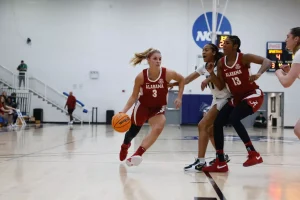Opinion: The collegiate model of networking is ineffective
September 4, 2019
Networking in the collegiate atmosphere is a disgusting process.
We’ve all seen the bootlickers who flock to the front of the lecture halls and classrooms after class. The tone of their inauthentic small talk and exaggerated anecdotes visibly jades the professor and draws scoffs from others.
We’ve all been to the university workshops, where tryhards scope out the most prominent speakers or panelists so that they have a direction in which to release all of their hot air.
We’ve all attended the dreadful networking events where, amidst the consumption of catered food, hordes of ladder climbers jockey for the attention of the attendants who can most benefit their career. Platitudes about qualifications and aspirations, crafted from worn-out guides on the internet, lambast those with jobs to offer.
In short, the collegiate model of networking is an inefficient, ineffective, inappropriate game that most students lose.
I have no qualms with the fact that industry is a game. Life is a contact sport. Success is predicated as much by who we know as it is by what we know. Therefore, I would hesitate to entirely condemn the taught necessity of a network.
What I will explicitly criticize is the collegiate model of networking. By “collegiate model,” I mean the inorganic facilitation of human interaction to produce organic results. There is nothing natural or relational about the way postsecondary educational institutions oversee networking. Encouraging students to repeatedly lobby industry leaders for positions in environments where surface-level interaction is the standard cannot produce quality relationships.
While their attempts are appreciated and can lead to jobs for students, they end up being more transactional than anything. In interactions with such power imbalance as those between a Goldman-Sachs executive and a junior finance student, for example, a transactional tone will kill the productivity of the interaction. One has much to offer, and one has comparatively little to offer. Without a relationship, there is no chance of such an interaction producing results for either of those involved. By focusing on oneself to acquire more influence and resources, recruiters take a step back in the conversation. We cannot connect with each other while displaying a façade of blatant selfishness.
Writer Ken Cook says it this way: “The outcome [of networking based solely on how someone can be useful for your career] is the approached person, the moment they suspect that comradely affection is dependent on how useful they are, shrinks away.”
People respond to connections. They respond to the creation of value. They respond to compassion. People respond to people!
For those of you looking for connections in your field to get the job of your dreams, stop the charades. Anyone with remotely active social skills will see straight through your disingenuous efforts. Instead of modeling your networking strategy after your collegiate environment, learn to authentically network with people by leveraging existing connections and personal experiences. Going to speak with your professor and engaging with strangers in your field aren’t the sins to avoid. The sin to avoid is approaching these interactions the predatorial way modeled for you in the collegiate environment. Stay authentic and look for ways to make your network a two-way street. A selfish kiss-up is never respected, regardless of their salary.










